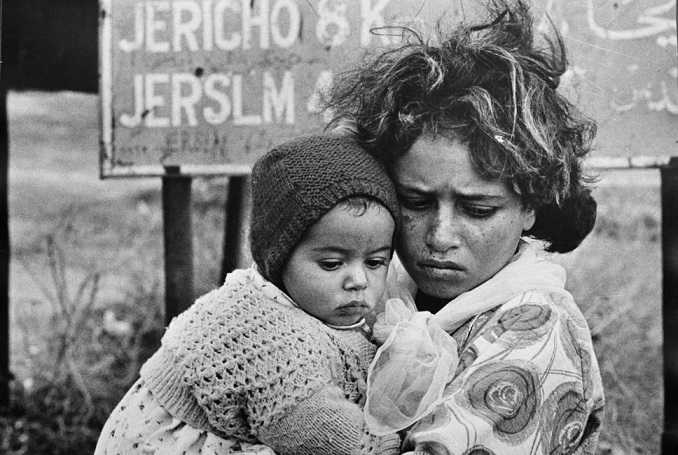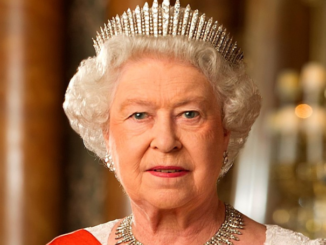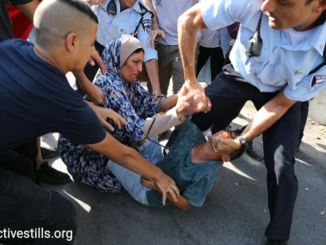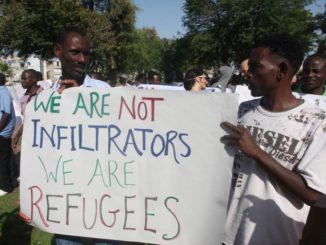
The Palestine solidarity movement should focus on Palestine https://t.co/XpaoMKkrce — #AJOpinion, by @ramzybaroud pic.twitter.com/UoiyGqCqhF
— Al Jazeera English (@AJEnglish) March 16, 2018
Baroud writes down the stories of eight individuals and their families. All Palestinian, they are also all refugees. Some have chosen to become warriors but the bulk of these intensely personal stories are about survival. Survival in desperate, dangerous and desolate circumstances; circumstances created by armies and politicians whose understanding of the human spirit is only that it is something that must be crushed to their will. Each tale is a brutal yet heart-rending reminder of how heartless decisions by the powerful destroy families, love, hopes and dreams. Despite the fear, despair, desolation and death, these stories and the people whose lives they describe maintain hope. It is that hope that not only keeps them live, but also what gives these tales their integral humanity.
RT PalestineChron "The Last Earth: A #Palestinian Story, by Ramzy #Baroud https://t.co/wxhs20PA9w PalestineChron pic.twitter.com/I0ZxKvWxeF"
— Richard Hardigan (@RichardHardigan) March 21, 2018
There is the young fighter Kamal who chooses a form of Marxist revolution to rescue his people and his nation and there are the visions of Sara Saba, a Palestinian in exile in Australia. Also included among the eight tales is a story of the lovers Khaled and Maysam Saeed who are separated in their flight from the multi-sided war in Syria and the family of Samir and Hana who end up suffering at the brutal hands of the Israelis. Although I have mentioned only four, all of the lives inside the stories of The Last Earth are complex in their experience and their understanding. Baroud’s telling blends magical realism with descriptions of violence, passions, pathos, love and desperation to weave a tapestry of the Palestinian experience in human history. One thing that becomes clear is that the idea of a people, a national heritage exists within the heart and souls of those who share it. Nothing—not guns, not walls, not theft of house and land—can remove that idea. Numerous writings from Palestinians and their supporters have made this clear, but few have done so as adroitly and poetically as Baroud has done here.
One of the greatest tragedies of modern history is the story of Palestine and Israel. The story of the Jewish people in Europe and the destruction of their lives and culture by the Nazis and that regime’s collaborators is not only well-known, it informs much of what has taken place since. Even though the Zionist infiltration of Israel began much earlier, it was the aftermath of each of the twentieth century’s great wars that intensified the destruction of Palestine and its “replacement” with the state of Israel. Naturally, many books have been written about this history with different interpretations of the circumstances and consequences. Most of those published in the US and Western Europe represent the Zionist understanding while those written, published and read in much of the rest of the world provide a version that makes Palestinians’ claim to the land foremost. Unfortunately for the Palestinians, Israel’s allies include the world’s most powerful armies and governments. Those allies have proven time and time again that compassion and fairness are not what motivates them. This has created a political situation that continues to try and erase Palestine and its people from the annals of history. Yet, they have not succeeded in that task.
RT PalestineChron "Ramzy #Baroud’s Book Tour: ‘The #Palestinian Saga as It Has Never Been Told Before’ (VIDEO) https://t.co/VfKfrPwW3q via PalestineChron pic.twitter.com/GEUf125Pb6"
— Richard Hardigan (@RichardHardigan) March 23, 2018
The Israeli historian Ilan Pappe writes in his introduction to The Last Earth that “Antonio Gramsci used to say that cultural resistance is either the rehearsal for political resistance or the means employed when political resistance is not possible.” Pappe continues his thought by writing that in the case of the Palestinians, it is both at the same time. Likewise, Baroud’s eight narratives are also both. The biographies he has collected and told in this book are a phenomenal testament to the courageousness of the human spirit. Baroud’s compositions are works of sheer unequivocal beauty. It is a beauty that is wrenched from a personal and collective tragedy so profound any reader but the one without a soul cannot help but be affected. This is a masterpiece of history and a masterful feat of writing. Together with Baroud’s earlier work My Father Was a Freedom Fighter, The Last Earth deserves not just a notice but a popular and broad reading by any and all who care about humanity in this age of despair.
– Ron Jacobs is the author of Daydream Sunset: Sixties Counterculture in the Seventies published by CounterPunch Books. His latest offering is a pamphlet titled Capitalism: Is the Problem. He lives in Vermont. He can be reached at: ronj1955@gmail.com. (This article was originally published in CounterPunch.org)








My heart weeps for the land of my grandfather who met his Jewish wife in the land of his father. Jew and an Arab in 1936? They (and his seven sisters) all migrated to the States only to face more persecution: land confiscated, cart to market destroyed, Anglo children stomping the eggs spilled from the over turned cart, tossing the vegetables into the woods.remember the last cow slaughtered to feed the family because she could give no more milk because we had nothing left to feed her. Then subsisting on oatmeal and government rations. That is the story of a Jewess who married a Palestinian man from Tiberias.